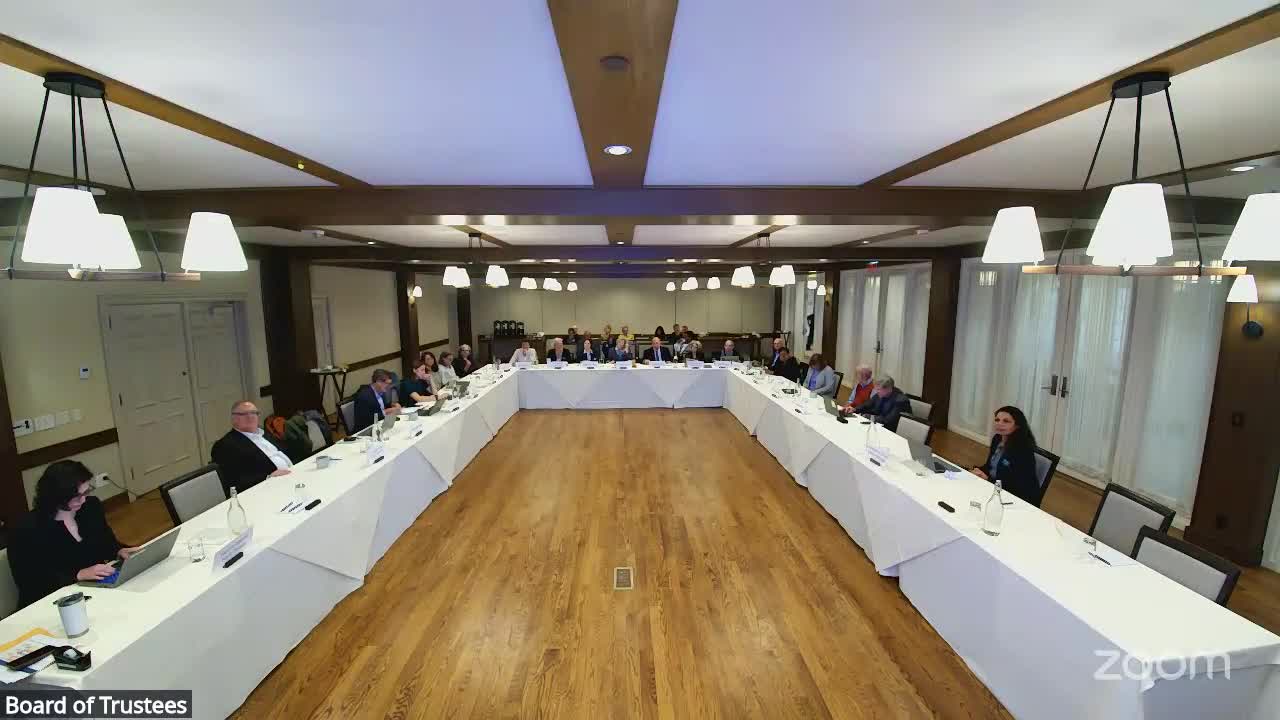CCV outlines expanded K—2 pipeline, dual-enrollment and a universal "Free Degree Promise" for seniors
Get AI-powered insights, summaries, and transcripts
Subscribe
Summary
Community College of Vermont staff on the Vermont State Colleges board described a multi-stage K—2 pipeline of access days, Intro to College and Career, multiple dual-enrollment pathways and an expanded Free Degree Promise that aims to remove tuition barriers for seniors.
Community College of Vermont staff on the Vermont State Colleges board agenda on Wednesday described a stepped pathway of outreach and coursework that aims to expose middle- and high-school students to college and increase postsecondary enrollment.
Katie Mobley, dean of enrollment and community relations, told trustees the collegebegan its secondary-education programming in 2001 with a course then called Intro to College Studies and has expanded the work to reach students as early as seventh and eighth grade. "Our goal is not to have students necessarily end up at CCV, but rather to help plant the seeds that students and their families could continue their education beyond high school," Mobley said.
The presentation outlined several established and expanding interventions: middle-school "access days" that give seventh- and eighth-graders a 35-to-45-minute experience of college coursework and campus life; Intro to College and Career, a 13-week course typically offered to ninth- and tenth-graders that many high schools grant credit for; three "flavors" of dual enrollment (FastForward at career-and-technical-education centers, dual enrollment at CCV, and concurrent enrollment taught by high-school teachers); and early college, a full-time, free-tuition senior-year option.
Mobley said CCV served 85 students in the first iteration of Intro to College Studies in 2001 and 266 students in the most recent academic year; she also said the collegeis seeing growth in career-and-technical offerings and expects further expansion now that every career-and-technical center in the state is offering Intro to College and Career.
Mobley and other presenters emphasized that philanthropic and grant funding fund much of the outreach so those efforts do not rely on student tuition. They highlighted a partnership with the Vermont Student Assistance Corporation(VSAC) GEAR UP program, which Mobley said received a seven-year award that will support middle-school access days, Intro to College and Career, and some dual-enrollment opportunities.
On early college, Mobley described an existing partnership with the Jay Warren and Lois McClure Foundation that funds an additional, tuition-free year for students who complete early college, creating a universal, no-debt accelerated associatedegree pathway. "It is a free, no-debt accelerated associate's degree program. It is universal. There is no income requirement," she said, noting that last year 82 students completed the program and that the program has served students from 34 different high schools.
Mobley said the Free Degree Promise operates as a last-dollar program: eligibility and financing are applied in sequence (Pell, then the state 802 opportunity, then McClure Foundation funds to fill the gap). Trustees sought clarification about the order of coverings and how the Free Degree Promise differs from the state 802 tuition program; Mobley said the Free Degree Promise is intended to be easier for families to understand and better at motivating high-school students to enroll.
Trustees raised implementation questions: several asked for better outcome data to show whether participants who took access days or Intro to College and Career were more likely to enroll at CCV or elsewhere, and about a 20132024 interpretation that removed an option for some career-and-technical-education students to participate concurrently in early college. Mobley said staff are working with the Agency of Education and state leaders to restore flexibility for students who want both CTE and early-college experiences.
Trustees also flagged a fiscal dynamic: board members said school districts and CTE centers can lose funding when students shift enrollment and that the policy discussion around increasing graduation requirements or moving students into early-college pathways creates trade-offs for local K—2 budgets. Presenters acknowledged the concern and the need for clearer statewide standards and data to guide legislative decisions.
CCV staff told the board they are pursuing a combination of internal evaluation and external research—work supported by VSAC funds—to better distinguish the effect of participation in CCV outreach from the enrollment path students would have taken without the interventions. Mobley said CCV has begun research partnerships to unpack causation and long-term outcomes.
Trustees did not take formal action on the presentation; staff said they will return with additional data and with any proposals to change program delivery or funding mechanisms.
